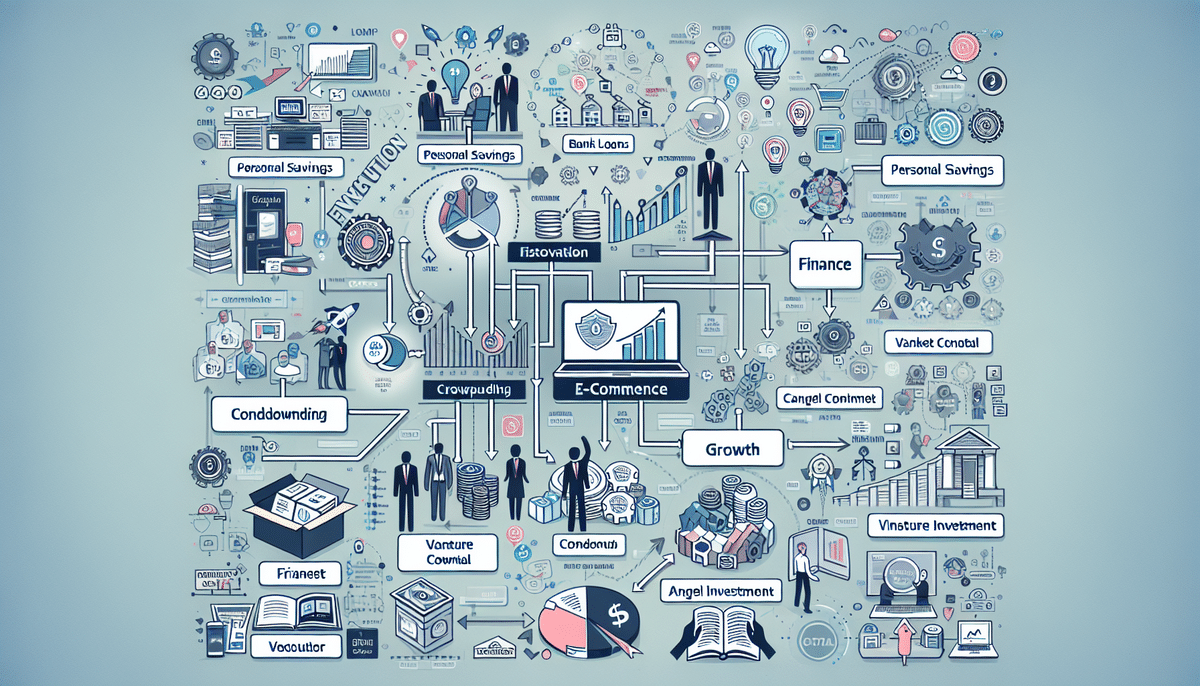Kickstarter vs Indiegogo: Choosing the Best Crowdfunding Platform for Your Project
Crowdfunding has revolutionized the way entrepreneurs, artists, and creators raise capital for their projects. Among the myriad of platforms available, Kickstarter and Indiegogo stand out as two of the most popular choices. This comprehensive guide delves into the nuances of each platform, helping you determine which is best suited for your crowdfunding needs.
Understanding the Basics of Crowdfunding
Crowdfunding involves collecting small amounts of money from a large number of people, typically via the internet, to fund a project or venture. There are several types of crowdfunding:
- Rewards-Based Crowdfunding: Backers receive a reward in exchange for their pledge, ranging from a thank-you note to the product itself.
- Equity Crowdfunding: Backers receive a share of the company or project, becoming shareholders.
- Donation-Based Crowdfunding: Funds are raised for charitable causes or personal projects without any expectation of returns.
Each type caters to different project needs and backer expectations, making it crucial to choose the right platform that aligns with your campaign goals.
Overview of Kickstarter and Indiegogo
Kickstarter
Launched in 2009, Kickstarter has facilitated over $7 billion in pledges for more than 200,000 projects. Focused primarily on creative projects in categories like art, music, film, and technology, Kickstarter operates on an all-or-nothing funding model, meaning projects must reach their funding goals to receive any funds.
Indiegogo
Founded a year earlier in 2008, Indiegogo has raised over $3 billion for more than 800,000 campaigns. It offers both all-or-nothing and flexible funding models, providing creators with more flexibility in how they manage their funds. Indiegogo is known for its strong emphasis on technology and innovation, including options for equity crowdfunding and initial coin offerings (ICOs).
Comparing Features: Fees, Funding Models, and Project Types
Funding Models
- Kickstarter: All-or-nothing funding ensures that project creators only receive funds if they meet their goal, reducing financial risk for backers.
- Indiegogo: Offers both all-or-nothing and flexible funding, allowing creators to keep the funds raised even if the goal isn't met.
Fees
Both platforms charge a base fee of 5% on successfully funded projects. Additionally, there are payment processing fees:
- Kickstarter: 3-5% depending on the campaigner's location.
- Indiegogo: 3-5%, with an extra 2.9% fee for the InDemand service, which allows ongoing fundraising post-campaign.
It's important to factor in these fees when setting your funding goals to ensure you retain the necessary funds for project execution.
Project Types
- Kickstarter: Excels with creative and technological projects like art installations, games, gadgets, and films.
- Indiegogo: Versatile with a strong presence in tech innovations, health, and personal projects, also supporting equity crowdfunding.
Success Rates and Case Studies
Success Rates
According to Kickstarter, approximately 37% of projects succeed in meeting their funding goals. Success rates vary by category; for instance, design projects have a higher success rate compared to music projects.
Indiegogo does not publicly disclose its success rates, but estimates suggest around 15-20% of campaigns reach their goals. The flexible funding option may contribute to differing success metrics compared to Kickstarter's model.
Notable Campaigns
- Kickstarter: Pebble Time, a smartwatch project, raised over $20 million in 2015, showcasing the platform's potential for large-scale projects.
- Indiegogo: Flow Hive, an innovative beehive system, successfully raised over $12 million in 2015, highlighting Indiegogo's strength in hardware and community-driven projects.
Creating a Successful Crowdfunding Campaign
General Tips
- Create a Compelling Story: Clearly articulate your project's mission, vision, and impact.
- High-Quality Multimedia: Use engaging videos and images to showcase your project.
- Set Realistic Goals: Ensure your funding target aligns with your project's actual needs.
- Effective Promotion: Leverage social media, email marketing, and personal networks to spread the word.
- Engage with Backers: Maintain transparent communication and provide regular updates.
Specific Tips for Kickstarter
- Meet the All-or-Nothing Criterion: Set a funding goal that matches the minimum required to bring your project to life.
- Build a Community: Engage early with potential backers to build momentum before launching.
- Offer Unique Rewards: Provide backers with exclusive rewards that add value beyond standard offerings.
Specific Tips for Indiegogo
- Choose the Right Funding Model: Decide between fixed or flexible funding based on your project's needs.
- Utilize InDemand: Continue fundraising after the campaign ends to sustain momentum.
- Explore Additional Funding Options: Consider equity crowdfunding or ICOs if applicable to your project.
Choosing the Right Platform for Your Campaign
Deciding between Kickstarter and Indiegogo hinges on several factors:
- Project Category: Creative and technological projects often perform well on Kickstarter, while Indiegogo offers more flexibility for diverse project types.
- Funding Flexibility: If you prefer retaining funds regardless of reaching your goal, Indiegogo's flexible model is advantageous.
- Funding Goals: Assess whether your project requires the all-or-nothing approach to ensure backer confidence.
- Fees and Costs: Calculate the total fees involved to determine the most cost-effective platform for your campaign.
- Community and Support: Consider the level of community engagement and support tools each platform offers.
Evaluate these aspects carefully to align your project's needs with the platform's strengths.
Crowdfunding Alternatives to Kickstarter and Indiegogo
If neither Kickstarter nor Indiegogo aligns with your project's requirements, several other platforms might be a better fit:
- GoFundMe – Ideal for personal, charitable, and community-focused campaigns.
- Crowdfunder – Focuses on equity crowdfunding for startups and businesses.
- Seedrs – European-based equity crowdfunding platform for startups seeking investment.
- Funding Circle – Specializes in peer-to-peer lending for small businesses.
Research each platform's features, audience, and fee structures to find the best match for your fundraising needs.
Legal and Financial Considerations of Crowdfunding
Launching a crowdfunding campaign entails several legal and financial responsibilities:
- Tax Implications: Funds raised may be considered taxable income. Consult with a tax professional to understand your obligations.
- Intellectual Property: Protect your ideas and products by securing patents, trademarks, or copyrights before launching your campaign.
- Liability for Product Defects: Ensure that your products meet all safety standards to avoid legal issues related to defects or damages.
- Legal Compliance: Adhere to the platform's terms of service and any relevant crowdfunding regulations in your jurisdiction.
It's advisable to consult with legal and financial experts to navigate these complexities effectively.
Conclusion: Selecting the Optimal Platform for Your Project
Both Kickstarter and Indiegogo offer robust platforms for crowdfunding, each with its unique advantages and considerations. Kickstarter is ideal for creative and technological projects seeking a committed backer community and the security of all-or-nothing funding. In contrast, Indiegogo provides greater flexibility in funding options and a broader range of project categories, including opportunities for equity crowdfunding.
Ultimately, the best platform for your project depends on your specific needs, project type, and fundraising goals. Thoroughly assess each platform's features, success rates, and community support to make an informed decision. Additionally, exploring alternative crowdfunding platforms can provide tailored solutions to meet your unique project requirements.
Whichever platform you choose, ensure that you understand the legal and financial implications and employ best practices to maximize your campaign's success. Good luck with your crowdfunding journey!




















